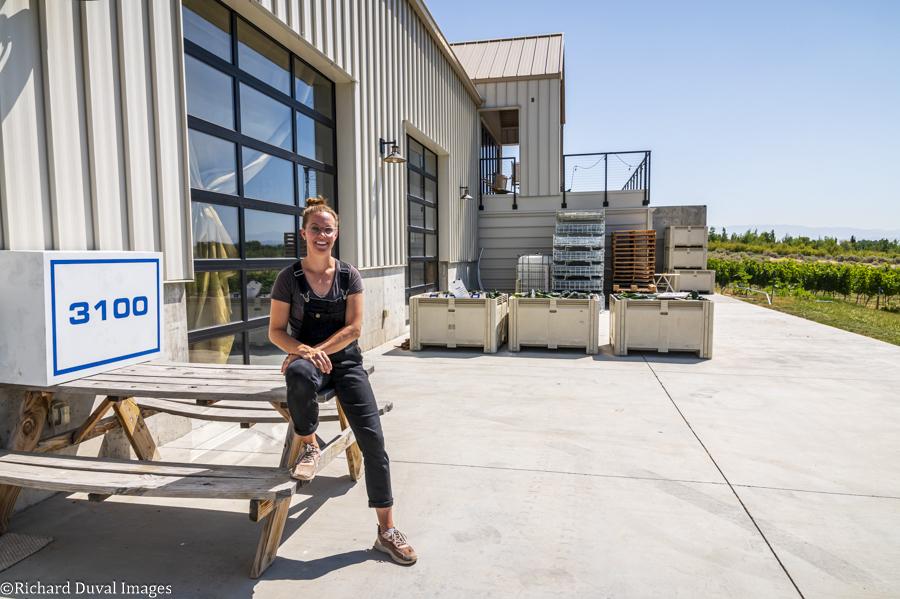
EAGLE, Idaho — Expertise, passion, talent and agritourism don’t always line up with a community’s land-use policy.
The debate within Idaho’s Eagle Foothills American Viticultural Area revolving around farming, wine production, consumer engagement and property rights serves as an example of how cultural confusion can stifle an expanding agricultural sector of a local economy.
For Idaho native Hailey Minder, the decorated winemaker behind 3100 Cellars, the struggle has received media attention in and around Boise. And yet somehow, she can still smile when sharing her on-going story that’s received attention from Treasure Valley news organizations.
“What else can you do but persevere?” she says, “but it’s been tough not to cry at times.”
In 2017, Hailey, her husband Marshall, and her parents planted Chardonnay, Syrah and the Mediterranean variety Malvasia Bianca on a sagebrush site. Finca Besada Vineyard — kissed farm in Spanish — overlooks Homer Road in unincorporated Ada County. She has been using some of this fruit to craft her award-winning sparkling wines.
In 2021, one of her entries won best of show at the Cascadia International Wine Competition in Washington state. Their early methode Champenoise production was done in shared space at the Telaya Wine Company facility in Garden City. As both brands prospered, it became apparent that 3100 Cellars would need to move into the sleek, contemporary shop/home that’s flanked by Finca Besada.
Early in 2021, the family prepared its application for two conditional-use permits (C.U.P.). One was for the winery. The other was for an “event center,” which was the county definition of a location that sold alcohol in a tasting room environment.
“We applied for the event center license so we could host our fall and spring release parties on the property,” Hailey says. “Wineries are allowed to have 12 events per year with up to 50 people.”
That means not all of the 3100 Cellars club members can attend.
“Instead of granting us normal winery operations, they limited it further — to only two events per year with less than 50 people,” she points out.
While agriculture and agricultural production are protected by Idaho’s Right to Farm Act (statutes 22-4501 and 22-4502), the sale of alcohol was not specifically mentioned in those statutes. The Minders’ applications also included a master site plan that encompassed all of their proposed operations.
Their application was submitted in fall 2021 and approved by the Ada County planning and zoning authority. However, that decision was appealed by a group calling itself “Friends of Eagle.” According to its website, the mission is “to protect the rural characteristics of Eagle.” (The listed address for the group is within a strip mall.)
After two public hearings and several concessions by 3100 Cellars, county commissioners approved all the pertinent permits.
The limitations agreed to by 3100 Cellars include restricting the winery to being open five days each week and limits of 10 guests per day on weekdays and 30 guests per day on weekends. Minder and her family also were required to install light-reducing shades on the glass roll-up doors of the production facility in order to block out light during harvest. (The Minders have not been given guidelines on the level of lumens they need to block).
More burdensome, however, is a Prohibition-era restriction in Ada County called “The 75% Rule.”
In order to sell alcohol in unincorporated Ada County, a winery is required to have written permission from 75% of the property owners within 1,000 feet of the estate.
In essence, it only takes 25.1% of the neighbors to squash the winery operation — even after the time and expense of the CUP process and public hearings. The Minders fell short of 75% approval. However, in June, the Ada County commissioners decided to approve the 3100 Cellars liquor license. Commissioners factored in the litany of restrictions placed on the Minders, which go beyond those put in place by the planning and zoning department.
The good news is that starting this past fall, 3100 Cellars has been allowed to sell wine “by appointment only” after an excruciating and expensive process that spanned more than three vintages.
Along the way — in part because of the uncertainty surrounding her own retail business — Hailey began to craft bubbles for clients such as Kerry Hill Winery in order to grow her 3100 Cellars business because of the restrictions on the number of customers visiting her family’s Homer Road facility.
Hurdles remain at Rolling Hills Vineyard
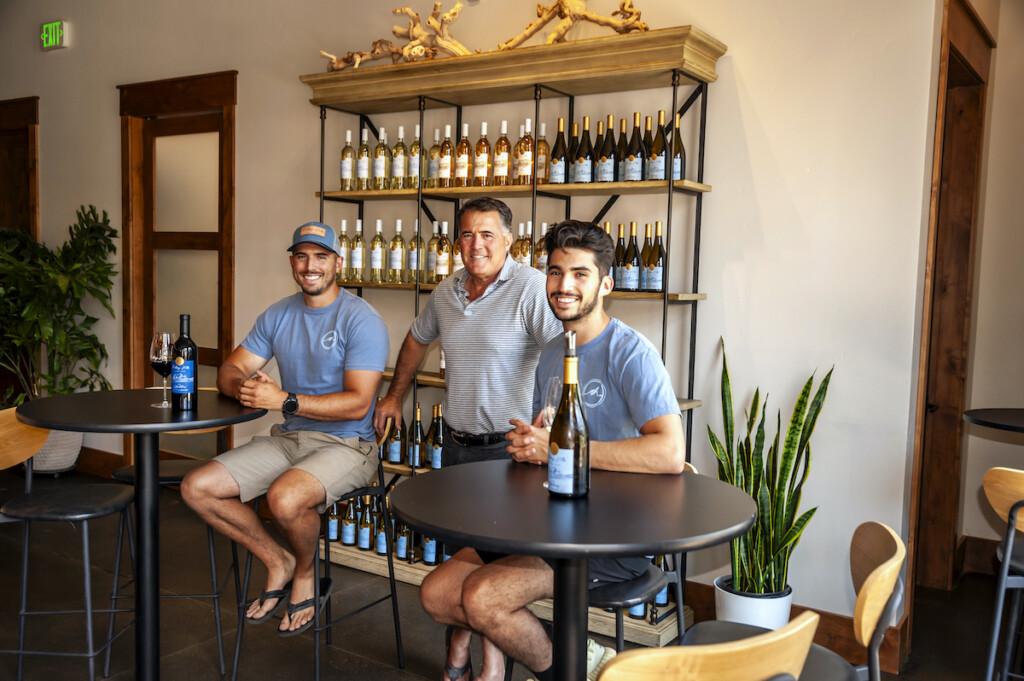
Little more than a mile to the east of 3100 Cellars is the estate planting for Mark and Lori Pasculli of Rolling Hills Vineyard — Great Northwest Wine’s 2023 Idaho Winery to Watch.
They purchased a neglected Cabernet Franc vineyard in 2016 and with some help from their children have rehabilitated those vines, added Syrah and Tempranillo and built a beautiful and bucolic home.
Mark returned to agriculture after successful careers as a CPA, attorney and entrepreneur so he takes a business-like approach to the land-use issues that have created confusion and frustration.
“It’s a clear lack of definitions and poor wording in the Ada County Comprehensive Plan,” he says, pointing to page 42 of that plan.
The county shall “continue to support the agricultural industry and preservation of agricultural land in rural, unincorporated parts of Ada County” and also “ensure non-agricultural development does not restrict adjacent agricultural operations.”
Ada County’s plan mentions wineries and tasting rooms as singular entities in one section, and yet says if alcohol is sold, the use must be permitted as an “event center.”
The original plan by the Pascullis was to open a tasting room on the estate property just north of Homer Road, but the land-use debate and the pandemic made it an easy decision to open a tasting room in Garden City just off Chinden Boulevard in a recently vacated space. Their success in that Boise suburb prompted the Pasculli family to remove its application for a permit to allow a wine tasting room on their estate. However, the climate created by “Friends of Eagle” also was a factor.
As it stands, Ada County continues to yield to a small yet vocal group of anti-change advocates while neglecting the declared intent written into the county’s comprehensive plan.
“Until the process and definitions are clearer, it’s not worth the time, money and aggravation to go through the existing process,” Pasculli says.
As a result, the family shifted its focus to growing their Rolling Hills Vineyard brand in Garden City and moving into a larger production facility — likely in nearby Canyon County.
Those decisions don’t mean Mark Pasculli is throwing in the towel. To support his operation and those of his winegrape growing neighbors across the street at One Stone Hill Vineyard and his winemaking friends along Homer Road, he is directing his efforts to find a legislative solution. The goal is to align the definitions of wineries and tasting rooms with Idaho’s “Right to Farm” statutes and dovetail with Ada County’s land-use laws.
Dude DeWalt pins its hopes on Star
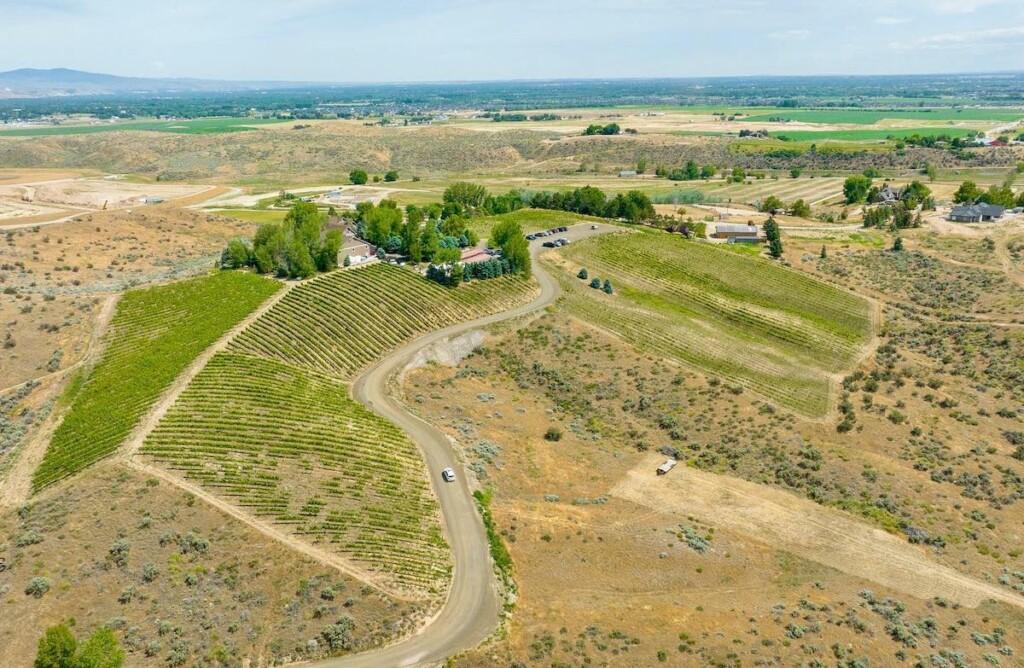
Dude DeWalt Cellars had an approved permit to operate a winery and tasting room off Highway 16 a short drive west of 3100 Cellars and Rolling Hills.
Trae and Johnna Buchert aimed to expand their tasting room and build a wine storage facility. However, they, too, ran into “Friends of Eagle” and the 75% Rule.
Meanwhile, as public hearings regarding the Bucherts’ plans grew contentious, the city of Star annexed land across the highway from Dude DeWalt.
This presented the Bucherts with an opportunity. Johnna Buchert reached out to planning and zoning officials in Star, and in June 2023, the city annexed the property that’s home to Dude DeWalt.
Most of the original conditions of the Ada County C.U.P. were retained in the agreement with the City of Star, but changes were made regarding the timing of improvements and placement of the new structures.
“They welcomed us into the process, and we worked collaboratively with City Hall to craft an agreement that allows us to operate a viable small business in the community that is consistent with their vision for the future,” Johnna Buchert said.
3 Horse Ranch invests again in Gem Co.
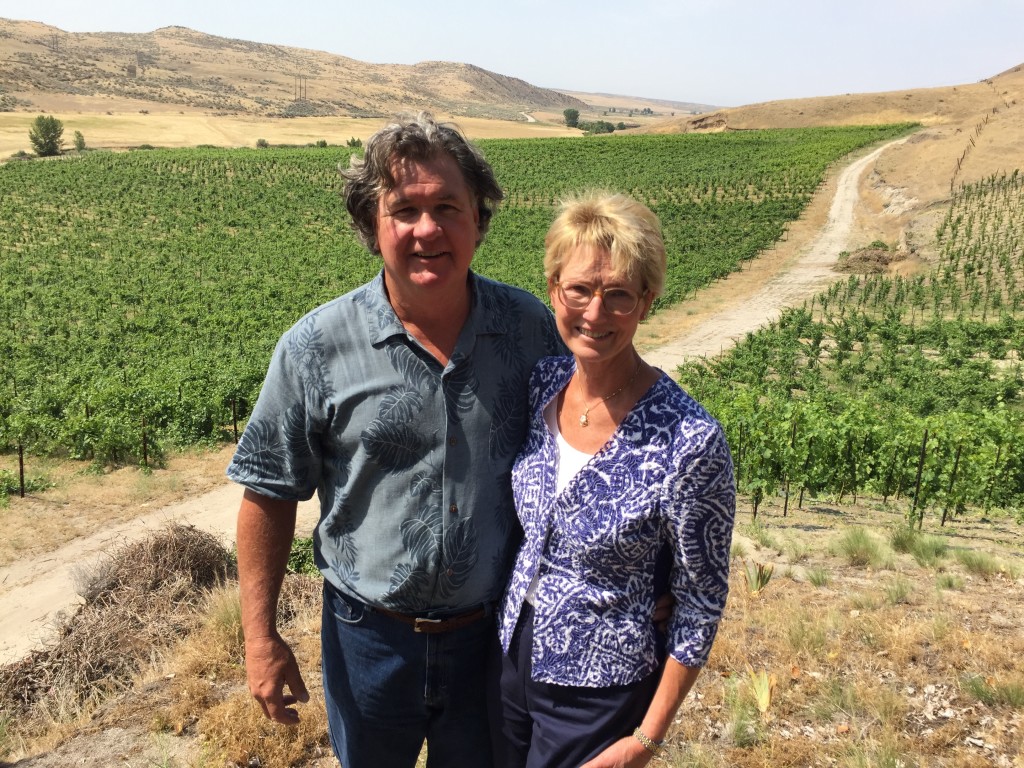
Just a few miles north of Eagle, 3 Horse Ranch Vineyards recently completed extensive improvements to its venue. And the owners, Gary and Martha Cunningham, had no planning and zoning issues because the 75% Rule doesn’t exist in Gem County.
The Cunninghams’ new winery and restaurant epitomize a rural wine experience in the Eagle Foothills AVA. And it’s worth noting Martha Cunningham, who grew up in Napa and attended University of California-Davis, spearheaded the petition to the federal government that established the AVA in 2015.
‘Walk a mile in their shoes’
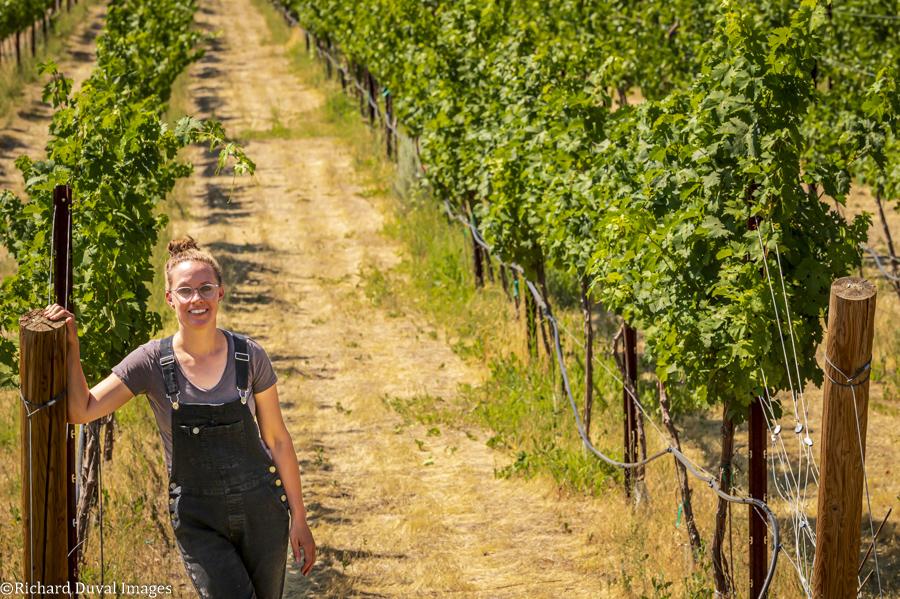
The Minders, the Pascullis and the Bucherts all faced the same small group that opposed their plans to do exactly what the Ada County comprehensive plan encourages.
In each case, the families stated, attempts were made to share with their neighbors the dreams they have for their vineyard, demonstrate how a small winery operates and envision what the extent of the changes would be. There would be no smoke stacks, heavy equipment noise, rock concerts or fleets of tractor-trailers clogging the roads. And if the Eagle Foothills Grape Growers Association had not lost much of its early traction, it might have helped educate the public.
“I hope that if I’m ever in a situation where someone else’s business and livelihood impacts me, that I will take the time to walk a mile in their shoes,” Hailey Minder says. “Get to know them and their project before leaping to judgment.”
Mark Pasculli simply wants to streamline the process and amend the county land-use plan so that his children and his wine grape-growing neighbors can live out their dreams.
As for the Bucherts, they feel fortunate to have found partners in Star’s city hall who were willing to listen, learn and adapt to the business of wine in the 21st century rather than back in the 1920s.
This type of respect, resilience, resourcefulness and forward-thinking is rather typical of the folks producing wine in Idaho today. It doesn’t matter if it is an early frost, a hard freeze or a small group that wants to stand in the way of agritourism and a family business. Idaho winemakers will continue to find a way to take what nature gives them and craft world-class wines.
Hailey Minder and her family planted Finca Besada Vineyard in the Eagle Foothills, but their estate winery is burdened by restrictions created by neighbors.
The Pasculli family of Rolling HIlls Vineyard have dropped plans for events at their vineyard because of opposition from neighbors.

Keep up the fight Eagle Foothills winemakers! You are the pioneers who have the vision and foresight to bring quality wines to our tables. Best wishes in your endeavors.